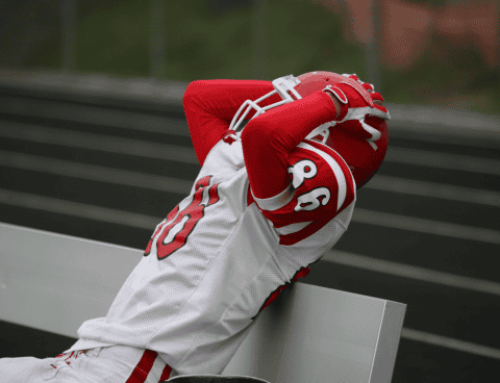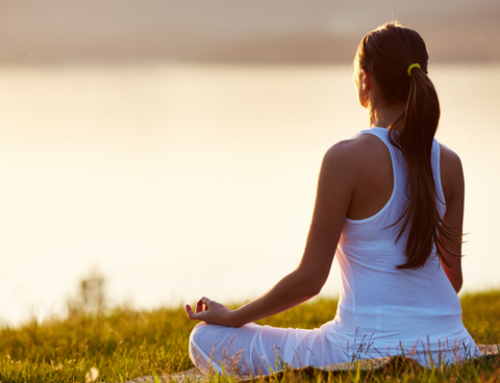The Signs and Symptoms of SAD On Athletes
For many athletes, the winter season means managing physical and, sometimes mental challenges. The shorter days, dull grey skies and neverending darkness can negatively affect motivation and training.
Seasonal depression or seasonal affective disorder (SAD), is related to changes in the seasons and our body’s chemical response to those changes. Lack of natural sunlight can cause an imbalance of serotonin and melatonin, two brain chemicals that affect mood. Melatonin is linked to sleep. The brain makes more melatonin when it’s dark, as a result, an increase in melatonin levels will cause a person to feel sleepy and less energetic. Serotonin is linked to mood and energy. The brain makes more serotonin when you are exposed to sunlight, boosting feelings of happiness and well-being. Low levels of serotonin lead to feelings of depression.
Athletes who spend their warmer months training outside can find these changes extremely challenging. Waking up for early morning practice can be made more difficult with the onset of SAD.
Signs And Symptoms Of Seasonal Depression
Mood Changes
SAD can cause somber moods, depression, and irritability. Seasonal depression can accentuate feelings of hopelessness, discouragement, and worthlessness in people. Athletes may begin lashing out towards teammates over small errors or disputes during games and practices.
Negative Thinking
A person can become more self-critical, or more sensitive to criticism. They may complain, blame, find fault, or see problems more often than usual. Negative thinking can manifest in confident athletes beginning to doubt themselves and second-guessing their abilities. However, they may deflect blame onto other teammates or competitors to hide their dwindling confidence.
Lack Of Enjoyment
People with SAD may lose enthusiasm for things they normally enjoy doing. They may avoid spending time with friends and family in social situations. Skipping training, team outings, study groups can become common occurrences.
Low Energy
Feeling low on energy, general tiredness, and a lack of motivation to do things. This is especially alarming for athletes who are typically high-achieving, active people. Decreasing motivation can look like skipping the weight room for an extra gym session but rather spending hours streaming or scrolling on social media.
Changes In Sleep
A person dealing with seasonal depression may sleep much more than usual. They may find it especially hard to get up and ready in the early morning. Oversleeping can increase your perception of fatigue making you feel more tired in the process. Fatigue has many negative impacts on performance. Fatigued athletes are less able to concentrate, take longer to solve tasks, make more mistakes and have slower reaction times.
Changes In Eating
SAD may bring on cravings for simple carbohydrates and the tendency to overeat. These hyper-palatable foods are often readily available and pleasing to your taste buds making it hard to control the amount you eat.
Trouble Concentrating
Like any form of depression, SAD can make it hard for individuals to focus. For student-athletes studying and writing papers can feel overwhelming. It may become difficult for athletes to stay engaged for long periods and short periods.
Athletes with seasonal depression may be dealing with any number of the symptoms listed above. Attempting to cope with or going it alone can lead to a buildup of the symptoms creating an increasingly overwhelmed state. Compounding factors can lead to a lack of motivation to train and willingness to participate in team-building activities.
Training outdoors during peak daylight whenever possible will increase sunlight exposure and boost serotonin. If the sport or weather conditions won’t allow it, going for a daily walk can do the trick. Talk to teammates, coaches, and parents about your feelings and if symptoms persist seek professional help from a doctor or therapist.
Read More:
The Scientific Reasons You Feel More Tired During Winter (And How To Combat It)
RECOMMENDED FOR YOU
MOST POPULAR
The Signs and Symptoms of SAD On Athletes
For many athletes, the winter season means managing physical and, sometimes mental challenges. The shorter days, dull grey skies and neverending darkness can negatively affect motivation and training.
Seasonal depression or seasonal affective disorder (SAD), is related to changes in the seasons and our body’s chemical response to those changes. Lack of natural sunlight can cause an imbalance of serotonin and melatonin, two brain chemicals that affect mood. Melatonin is linked to sleep. The brain makes more melatonin when it’s dark, as a result, an increase in melatonin levels will cause a person to feel sleepy and less energetic. Serotonin is linked to mood and energy. The brain makes more serotonin when you are exposed to sunlight, boosting feelings of happiness and well-being. Low levels of serotonin lead to feelings of depression.
Athletes who spend their warmer months training outside can find these changes extremely challenging. Waking up for early morning practice can be made more difficult with the onset of SAD.
Signs And Symptoms Of Seasonal Depression
Mood Changes
SAD can cause somber moods, depression, and irritability. Seasonal depression can accentuate feelings of hopelessness, discouragement, and worthlessness in people. Athletes may begin lashing out towards teammates over small errors or disputes during games and practices.
Negative Thinking
A person can become more self-critical, or more sensitive to criticism. They may complain, blame, find fault, or see problems more often than usual. Negative thinking can manifest in confident athletes beginning to doubt themselves and second-guessing their abilities. However, they may deflect blame onto other teammates or competitors to hide their dwindling confidence.
Lack Of Enjoyment
People with SAD may lose enthusiasm for things they normally enjoy doing. They may avoid spending time with friends and family in social situations. Skipping training, team outings, study groups can become common occurrences.
Low Energy
Feeling low on energy, general tiredness, and a lack of motivation to do things. This is especially alarming for athletes who are typically high-achieving, active people. Decreasing motivation can look like skipping the weight room for an extra gym session but rather spending hours streaming or scrolling on social media.
Changes In Sleep
A person dealing with seasonal depression may sleep much more than usual. They may find it especially hard to get up and ready in the early morning. Oversleeping can increase your perception of fatigue making you feel more tired in the process. Fatigue has many negative impacts on performance. Fatigued athletes are less able to concentrate, take longer to solve tasks, make more mistakes and have slower reaction times.
Changes In Eating
SAD may bring on cravings for simple carbohydrates and the tendency to overeat. These hyper-palatable foods are often readily available and pleasing to your taste buds making it hard to control the amount you eat.
Trouble Concentrating
Like any form of depression, SAD can make it hard for individuals to focus. For student-athletes studying and writing papers can feel overwhelming. It may become difficult for athletes to stay engaged for long periods and short periods.
Athletes with seasonal depression may be dealing with any number of the symptoms listed above. Attempting to cope with or going it alone can lead to a buildup of the symptoms creating an increasingly overwhelmed state. Compounding factors can lead to a lack of motivation to train and willingness to participate in team-building activities.
Training outdoors during peak daylight whenever possible will increase sunlight exposure and boost serotonin. If the sport or weather conditions won’t allow it, going for a daily walk can do the trick. Talk to teammates, coaches, and parents about your feelings and if symptoms persist seek professional help from a doctor or therapist.
Read More:
The Scientific Reasons You Feel More Tired During Winter (And How To Combat It)











